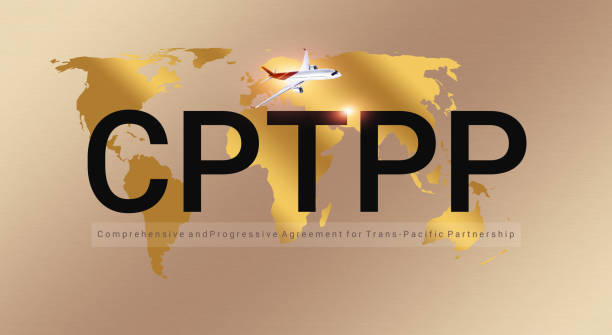1. Unlocking Opportunities: A Guide to Foreign Investment Incentives
In an interconnected global economy, foreign investment plays a pivotal role in driving growth, fostering innovation, and creating jobs. Governments around the world recognize the significance of attracting international capital and have designed a plethora of incentives to entice investors. From tax breaks to grants, these incentives aim to facilitate cross-border investments and enhance economic prosperity.
Why Invest Abroad?
Investors seek new markets, diversification, and access to resources beyond their home borders. Whether it’s a multinational corporation expanding its footprint or an individual entrepreneur exploring emerging markets, foreign investment offers compelling advantages:
Market Access: Investing abroad allows companies to tap into untapped consumer bases, explore new demographics, and expand their customer reach.
Resource Acquisition: Access to raw materials, skilled labour, and cutting-edge technologies can significantly boost productivity and competitiveness.
Risk Diversification: Spreading investments across different countries mitigates risks associated with economic downturns or policy changes in a single market.
The Landscape of Incentives
Governments worldwide compete to attract foreign direct investment (FDI) by offering a mix of incentives. These can be broadly categorized into:
Financial Incentives:
Tax Credits: Reduced corporate tax rates, R&D tax credits, and investment tax incentives.
Grants and Subsidies: Direct financial support for specific projects, industries, or regions.
Customs and Duties Exemptions: Waiving import/export duties for certain goods.
Non-Financial Incentives:
Infrastructure Support: Access to well-developed infrastructure, transportation networks, and logistics hubs.
Special Economic Zones (SEZs): Designated areas with preferential regulations, streamlined processes, and business-friendly environments.
Workforce Development: Training programs and skill development initiatives.
Navigating the Complex Terrain
While these incentives are enticing, investors must tread carefully. Each country has its unique regulatory framework, eligibility criteria, and reporting requirements. Due diligence is crucial to understanding the fine print and maximizing the benefits.
In this comprehensive guide, we delve into the investment landscapes of key countries, exploring their incentives, legal frameworks, and success stories. Whether you’re eyeing the skyscrapers of New York or the bustling markets of Mumbai, our insights will empower you to make informed investment decisions.
So fasten your seatbelt as we embark on a journey through tax codes, innovation hubs, and economic corridors. Let’s unlock the doors to global opportunities!
Remember, the world of foreign investment is dynamic, and staying informed is essential. Consult local experts, engage with investment promotion agencies, and explore the nuances of each destination.
Here’s an overview of investment incentives by country, including tax credits and subsidies:
- United States: The US offers various federal and state-level incentives for foreign investors. These include research and development (R&D) tax credits, investment tax credits (ITCs), and grants for specific industries or regions.
- United Kingdom: The UK provides R&D tax relief for eligible companies engaged in research and development activities. It also offers Enterprise Investment Scheme (EIS) and Seed Enterprise Investment Scheme (SEIS) tax incentives for investors in startups and small businesses.
- Germany: Germany offers investment grants for specific sectors, such as renewable energy and innovation. Additionally, there are tax incentives related to R&D and capital investments.
- India: India offers tax holidays for certain industries, export promotion schemes, and incentives for foreign direct investment (FDI) in priority sectors.
- Canada: Canada has provincial and federal programs that provide tax credits for R&D, film production, and other eligible activities. The Scientific Research and Experimental Development (SR&ED) program is a notable example.
- France: France offers tax credits for R&D, innovation, and investments in startups. The Crédit d’Impôt Recherche (CIR) is a well-known R&D tax incentive.
- Japan: Japan provides tax incentives for foreign investors, including reduced corporate tax rates and special zones with preferential treatment.
- Australia: Australia offers the Research and Development Tax Incentive (RDTI) for eligible R&D activities. It also has investment promotion agencies at the federal and state levels.
- Netherlands: The Netherlands provides tax credits for R&D, innovation, and investments. The Innovation Box regime allows for reduced taxation on income from intellectual property.
Remember that these incentives can vary based on factors such as industry, project type, and location. It’s essential to consult local experts or government agencies for precise details and eligibility criteria.
2. Navigating Romania’s Investment Landscape: Unravelling the FDI Story

vlad ioan pexels
Romania, with its rich history, picturesque landscapes, and vibrant culture, has emerged as a compelling destination for foreign investors. Nestled at the crossroads of Eastern and Central Europe, this dynamic nation beckons with promises of opportunity, growth, and transformation.
The Allure of Romania
Why should investors turn their gaze toward Romania? Let’s explore:
- 1. Strategic Location: Romania’s strategic position offers a gateway to both the European Union (EU) and the broader Eastern European market. With well-connected transportation networks, businesses can seamlessly access neighbouring countries and beyond.
- Market Potential: A population of over 19 million awaits innovative products, services, and solutions. From Bucharest’s bustling streets to the serene landscapes of Transylvania, Romanian consumers hunger for quality offerings.
- Cost-Effective Labour: Investors revel in Romania’s skilled workforce, which combines education, adaptability, and competitive wages. Whether it’s software development, manufacturing, or creative industries, the talent pool runs deep.
- Investment Incentives: The Romanian government actively courts foreign capital. Tax breaks, grants, and sector-specific incentives create an enticing environment. The Enterprise Investment Scheme (EIS) and Special Economic Zones (SEZs) beckon with open arms.
Challenges and Triumphs
Yet, beneath the allure lies a nuanced landscape. Investors encounter challenges:
- Corruption: Romania grapples with corruption, demanding vigilance and transparency. Navigating this terrain requires savvy and ethical business practices.
- Legal Framework: Legislative stability remains a work in progress. Investors must adapt to evolving laws and regulations.
- Innovation and Growth: Romania’s journey toward innovation continues. While strides have been made, fostering a robust ecosystem demands concerted efforts.
Our Journey Ahead
In this comprehensive exploration, we delve into Romania’s investment climate. From the historic streets of Sibiu to the tech hubs of Cluj-Napoca, we uncover success stories, pitfalls, and the beating heart of Romanian entrepreneurship.
- FDI Flows and Stock: According to the UNCTAD’s 2022 World Investment Report, FDI flows to Romania totalled USD 8.6 billion in 2021, which is a remarkable 150% increase compared to the previous year. The total stock of FDI in Romania stood at USD 108.7 billion, constituting approximately 38.4% of the country’s GDP.
Key sectors attracting FDI include manufacturing, construction, real estate transactions, trade, financial intermediation, and insurance.
Notably, the main investing countries are the Netherlands, Germany, Austria, Italy, and Cyprus.
The capital city, Bucharest, remains the primary hub for foreign investment in the entire country.
- Advantages for Investors: Romania boasts several advantages for investors:
- Large Domestic Market: Investors can tap into a sizable consumer base
- Industrial Tradition: The country has a strong industrial heritage, particularly in sectors like car manufacturing
- Cost-Effective Labor: Romania offers a well-educated workforce with low labour costs compared to other EU countries
- Favourable Tax Regime: The country has one of the lowest tax rates in the EU, encouraging both industrial investment and startups
- EU Funds: Co-financed projects by EU funds provide additional support for investment.
- Challenges and Considerations: While Romania presents opportunities, investors should be aware of challenges:
- Corruption: It remains a concern and requires vigilance
- Legislative Instability: The legal framework can be unpredictable
- Weak Judicial Independence: Ensuring legal protection is essential
- New FDI Screening Rules: Romania has tightened regulations in line with EU Regulation 2019/452. The National Council for Country’s Defence (CSAT) can halt investments deemed a threat to national security in sectors like security, energy, transportation, and infrastructure.
- Global Rankings: Romania ranks 49th out of 132 in the 2022 Global Innovation Index. In the Corruption Perception Index, it stands at 63rd out of 180 countries. The Economist Business Environment ranking places Romania at 39th out of 82 countries.
Decline
The foreign direct investment (FDI) inflows into Romania have experienced a decline in 2023. Let’s explore the reasons behind this drop:
- Reduced Overall FDI: In the 12 months leading up to August 2023, the gross inflows of FDI to Romania decreased by 16% year-on-year, amounting to EUR 7.7 billion. This decline is significant compared to the previous period. Measured as a ratio to GDP, FDI dropped to 2.5%, down from 4.6% in the same period in 2022 and close to the 2.6% ratio in the preceding 12 months.
- Equity FDI Rise: Interestingly, equity FDI (foreign investment in the form of equity) reached its highest level since before the Covid-19 crisis. It surged to EUR 2.55 billion in the 12 months to August 2023, quadrupling from the previous 12-month period. Out of the total FDI, more than half (EUR 4.91 billion) came from reinvested profits—earnings reported by FDI companies and not yet repatriated. This represents a decline from the outstanding reinvested earnings in the same period in 2022 but remains substantial.
- Factors Contributing to the Drop: Economic Conditions: The tough economic environment may have impacted FDI levels in 2023. Global Inflation: While global inflation is expected to improve, it may still affect FDI levels, especially in the first half of the year.
4. UK Navigating New Horizons: The UK’s CPTPP Odyssey

CPTPP
Amidst the tumultuous waves of global trade, the United Kingdom sets sail toward a promising horizon—the Comprehensive and Progressive Agreement for Trans-Pacific Partnership (CPTPP). As the UK charts its post-Brexit course, this landmark decision to join the CPTPP marks a pivotal moment in its economic trajectory.
CPTPP is a vast global free trade area consisting of 11 countries, home to 500 million people, across Asia Pacific and the Americas, and now the UK. Once the UK joins the group, CPTPP will be worth £12 trillion – 15% of global GDP – and over 99% of UK goods exports to CPTPP countries will face zero tariffs.
The CPTPP: A Tapestry of Trade
The CPTPP, born from the ashes of the Trans-Pacific Partnership (TPP), weaves together twelve nations across the Pacific Rim. From the bustling markets of Japan to the sun-kissed shores of Chile, this trade pact transcends borders, harmonizing regulations, slashing tariffs, and fostering cooperation.
Why the UK?
The UK’s accession to the CPTPP is more than a mere signature—it’s a strategic move laden with implications:
- Diversification: As the UK seeks to diversify its trade partners beyond Europe, the CPTPP opens doors to vibrant markets. From Vietnam’s tech boom to Canada’s maple-scented forests, opportunities abound.
- Geopolitical Chess: In a world where economic alliances mirror geopolitical allegiances, the CPTPP aligns the UK with like-minded nations. It’s a calculated move on the grand chessboard of global influence.
- Post-Brexit Reckoning: Departing the EU was a seismic shift. The CPTPP offers the UK a fresh canvas—a chance to redefine its trade identity, unshackled by Brussels’ bureaucracy.
Challenges on the High Seas
Yet, no voyage is without squalls. The UK faces challenges:
- Navigating Regulatory Waters: Harmonising divergent regulations across twelve nations demands finesse. From intellectual property to environmental standards, the devil lies in the details.
- Domestic Backlash: Critics raise their voices. Will the CPTPP compromise the NHS? Will British farmers be swept away by a tide of imports? Balancing national interests is a tightrope walk.
- The Ghost of TPP Past: The TPP’s demise still echoes. Sceptics recall its contentious chapters—the secretive investor-state dispute settlement (ISDS) and intellectual property provisions. Can the CPTPP exorcise these ghosts?
Setting Sail
As the UK unfurls its sails, it embarks on a voyage of opportunity, risk, and transformation. The CPTPP beckons—a constellation of promises and perils. From the hallowed halls of Westminster to the bustling markets of Auckland, the UK’s CPTPP odyssey awaits.
Kemi Badenoch the UK Business and Trade Secretary met with other CPTPP ministers in California recently. She also met with the Governor or California to discuss signing an MoU with the state.
5. UK signs MoU with Florida

raoul croes via unsplash
The UK has signed an MoU with the US state of Florida following the Governor’s trade visit earlier this year.
Kemi Badenoch and Florida Governor Ron De Santis said the agreement will prioritize space research and aerospace manufacturing, medical technology, financial technology including reinsurance, supply chains and logistics, transportation, infrastructure, as well as emerging areas such as artificial intelligence and semiconductors.
Trade Between the UK and Florida
The existing trade relationship between the UK and Florida is already robust, with trade worth more than £5 billion (approximately $6.14 billion) annually. UK companies play a significant role in Florida’s economy, accounting for over 70,000 jobs in the state. Britain stands as the top foreign investor in Florida, with estimated total holdings reaching $18 billion.
The Memorandum of Understanding (MoU)
On November 14, 2023, Business and Trade Secretary Kemi Badenoch and Florida Governor Ron DeSantis signed the 7th UK-US state level Memorandum of Understanding (MoU) to boost trade and investment between the UK and Florida. Florida boasts a GDP of over £1.1 trillion, making it the fourth largest of any US state—roughly equivalent to Spain’s economy. The MoU aims to facilitate quicker, easier, and more cost-effective business interactions between UK and Florida firms. It specifically targets sectors where both regions excel, including space, fintech, AI, and legal services. Notably, this MoU is the first the UK has signed that focuses on the space sector. Florida, home to the NASA Kennedy Space Center, offers immense opportunities for the UK’s growing space industry, which now generates an income of over £17.5 billion and employs nearly 50,000 people.
UK’s State-Level Strategy
With this signing, the UK now has MoUs with seven US states: Indiana, North Carolina, South Carolina, Oklahoma, Utah, Washington, and Florida. These states collectively boast a combined GDP of £3.3 trillion, just under Germany’s GDP. The UK continues to engage actively with other states, including Texas, California, Colorado, and Illinois, further expanding its trade network.
Florida’s Economic Excellence
Florida’s economic prowess extends beyond its stunning beaches. As a national leader for business growth and development, it remains a model for American excellence.
In summary, this MoU signifies a strategic step toward deeper economic ties between the UK and Florida, unlocking opportunities across sectors and fostering collaboration in the dynamic transatlantic landscape.
6. UK’s FDI concierge service

benjamin davies via unsplash
Let’s delve into the fascinating world of foreign direct investment (FDI) and compare the UK’s innovative “concierge service” approach with the colossal US aid package. Buckle up for an insightful journey!
The Landscape of Foreign Direct Investment: The UK’s Concierge Service Approach
In the bustling corridors of global investment, the United Kingdom has unveiled a novel strategy: the FDI concierge service. Imagine a bespoke service tailored to the needs of investors—a one-stop shop where red tape unravels, questions find answers, and opportunities flourish.
- Personalised Guidance: The concierge service assigns dedicated experts to guide investors through the labyrinth of regulations, incentives, and market nuances. Whether it’s setting up a tech startup in London or exploring renewable energy projects in Scotland, investors receive personalized attention.
- Navigating Complexity: Investing abroad can be daunting. The concierge service simplifies the process, helping investors understand tax implications, legal frameworks, and sector-specific incentives. It’s like having a seasoned navigator on board.
- Speed and Efficiency: Time is money. The UK’s concierge service streamlines administrative procedures, accelerates approvals, and ensures smoother entry into the market. Investors can focus on their core business while the service handles logistics.
The US: A $1.2 Trillion Aid Package
Across the Atlantic, the United States has unfurled a colossal aid package—a financial juggernaut aimed at revitalizing its economy. Here’s a glimpse:
- Infrastructure Investment: The US aid package earmarks $1.2 trillion for infrastructure projects. Roads, bridges, broadband networks, and clean energy initiatives will receive a much-needed boost. It’s a grand-scale makeover.
- Job Creation: The funding aims to create jobs in engineering, construction and tech.
- Climate Resilience: Climate change looms large. The aid package allocates funds for climate resilience, green infrastructure, and sustainable practices.
Challenges and Trade-offs
- Tailored vs. Mass Approach: The UK’s concierge service offers precision, but can it handle a surge of investors? The US aid package casts a wide net, but will it address individual needs?
- Speed vs. Scale: The concierge service prioritizes speed, but can it match the scale of a $1.2 trillion injection? The US aid package aims for transformation, but bureaucracy may slow execution.
- Risk Mitigation: Both approaches seek to mitigate risks. The UK’s concierge service minimizes investor uncertainty, while the US aid package diversifies risk across sectors.
Setting Sail
As investors weigh options, they stand at a crossroads. The UK beckons with personalised care, while the US unfurls its financial sails. Which path leads to prosperity? Perhaps a blend of both—the concierge’s handshake and the aid package’s embrace.
So, fellow investors, choose wisely. Whether you sip tea in London or coffee in New York, remember: FDI is about more than numbers—it’s about shaping economies, forging partnerships, and leaving footprints on the global stage.
7. Bulgaria’s FDI Surge: A Closer Look

ivan nedelchev unsplash
The Rise in FDI
In the shadow of the Balkan Mountains, Bulgaria has witnessed a notable surge in FDI. Here’s a glimpse of the recent trends:
- Impressive Growth: Over the past 12 months, Bulgaria experienced a remarkable 32.5% increase in FDI inflows². This surge defies economic headwinds and positions Bulgaria as an attractive investment destination.
- Numbers Speak: In April 2023 alone, FDI in Bulgaria rose by $60.2 million, compared to a substantial increase of $1.4 billion in the previous month. These numbers underscore investor confidence and highlight Bulgaria’s potential.
Reasons Behind the Increase
Several factors contribute to this upward trajectory:
- Strategic Location: Bulgaria’s geographical position at the crossroads of Europe and Asia makes it a gateway for trade and investment. Investors eye the country as a bridge connecting markets.
- Cost-Effective Labour: Bulgaria offers a skilled workforce at competitive wages. Companies seeking efficiency find a sweet spot here, especially in sectors like IT, manufacturing, and services.
- EU Membership: As an EU member state, Bulgaria enjoys access to a vast single market. Investors appreciate the stability, legal framework, and harmonized regulations that come with EU membership.
- Infrastructure Development: Ongoing infrastructure projects—such as highways, ports, and energy networks—enhance Bulgaria’s connectivity and attractiveness for investors.
- Digital Transformation: Bulgaria’s growing tech ecosystem, including software development, cybersecurity, and fintech, draws attention. The country’s tech-savvy talent pool fuels innovation.
- Green Energy: Renewable energy projects, particularly wind and solar, thrive in Bulgaria. Investors seek sustainable solutions, and Bulgaria’s commitment to clean energy aligns with global trends.
Challenges Ahead
- Corruption Perception: Bulgaria faces scrutiny regarding corruption perception. Transparency and governance reforms are essential to maintain investor trust.
- Labour Market Dynamics: While labour costs are low, retaining skilled workers and addressing brain drain remain challenges.
- Regulatory Agility: Streamlining bureaucracy and ensuring consistent regulations are crucial for sustained FDI growth.
Setting a Course
As Bulgaria charts its economic course, investors weigh risks and rewards. The surge in FDI signals optimism—a dance between opportunity and due diligence. Whether it’s Sofia’s historic streets or Varna’s Black Sea coast, Bulgaria invites investors to explore its potential.







